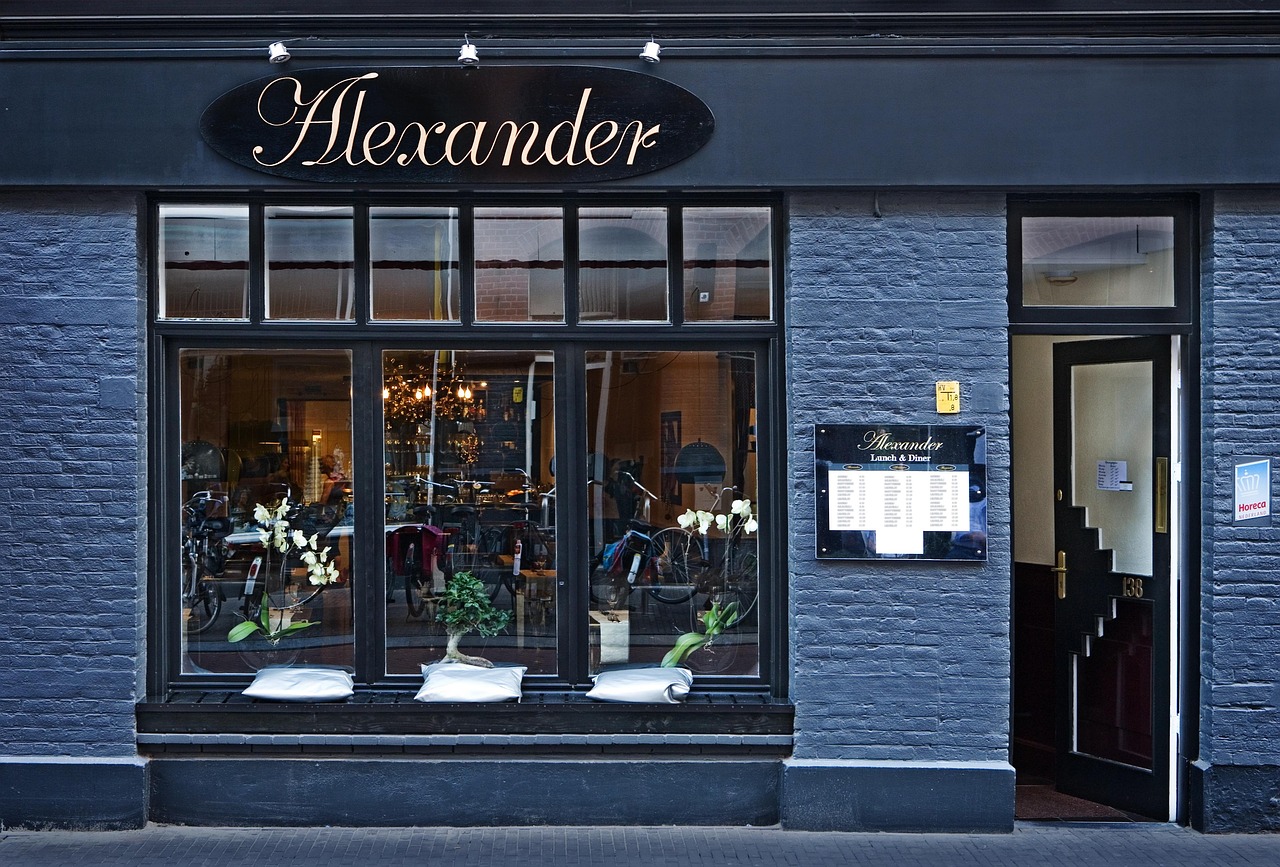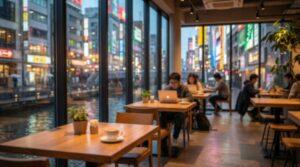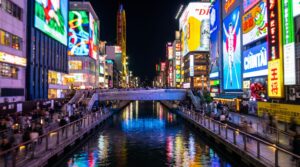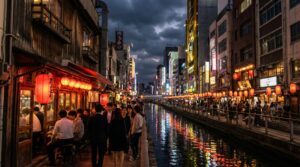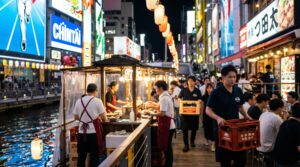Osaka. The name itself conjures images of sizzling takoyaki, towering neon signs, and a city buzzing with an energy that’s uniquely its own. It’s known as Japan’s Kitchen for a reason, a place where food is not just sustenance, but a way of life, an art form celebrated with boisterous joy. In the heart of this vibrant metropolis lies a district that seems to pulse with a different kind of energy altogether: Nipponbashi, more famously known as Den Den Town. Step off the train and you’re plunged into a world of soaring electronic store facades, kaleidoscopic anime billboards, and the siren song of arcade machines. It’s a paradise for pop culture pilgrims, a treasure trove for tech enthusiasts, and, as I delightedly discovered, an unexpectedly welcoming haven for the Muslim traveler seeking a taste of authentic Japan. For many, Den Den Town is a feast for the eyes and ears, but hidden just beneath its electric surface is a burgeoning culinary scene that offers a delicious, soul-satisfying feast that is Halal-friendly. It’s a place where you can spend the morning hunting for vintage video games and the afternoon slurping a rich, comforting bowl of Halal ramen, making it a truly modern and inclusive corner of this incredible city.
For more insights into Halal-friendly dining options in another vibrant Osaka neighborhood, explore our guide to Halal dining in Shinsaibashi.
The Electric Dreamscape and Its Hidden Flavors
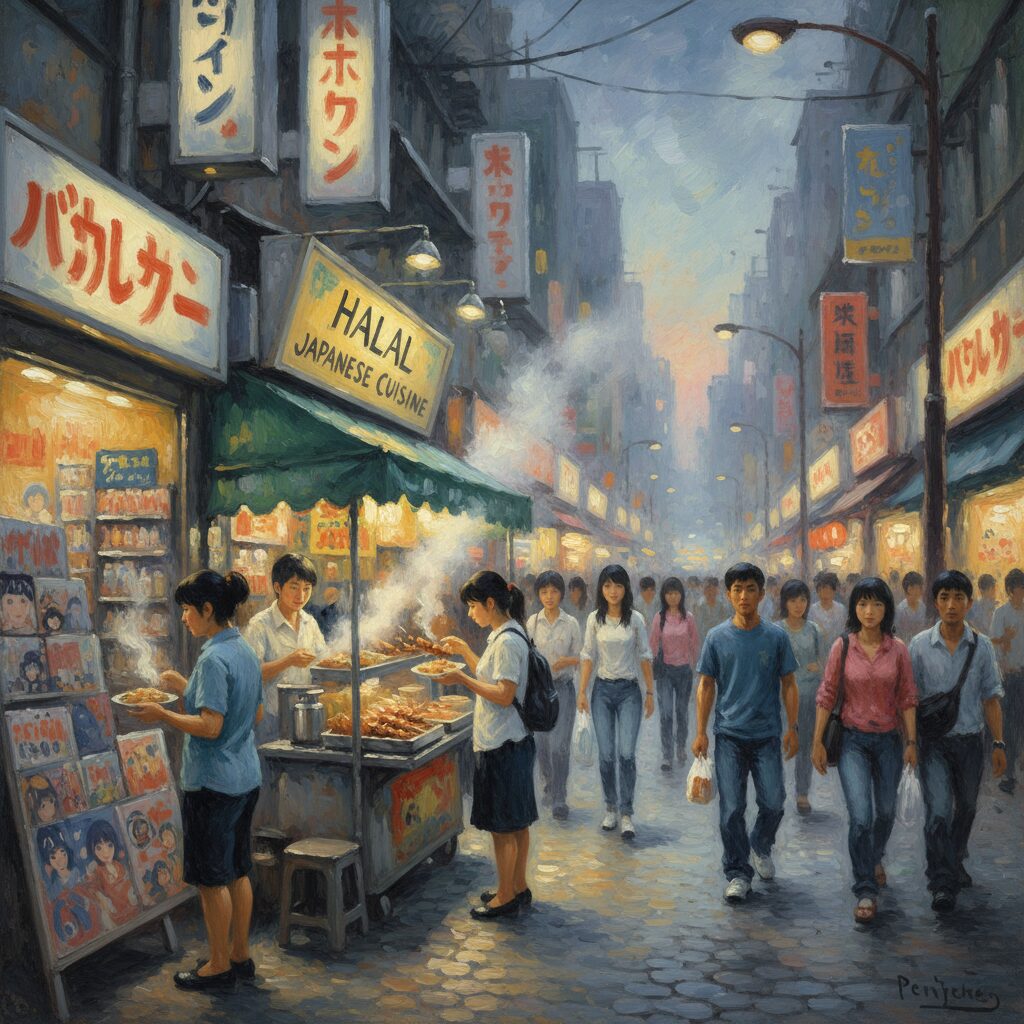
Strolling through Den Den Town engages all the senses. The main thoroughfare, Sakaisuji Avenue, features towering buildings adorned with vibrant characters from beloved anime and manga series. The atmosphere buzzes with a mix of J-pop tunes flowing from shops, the clatter and jingles of pachinko parlors, and the lively chatter of visitors from all over the world. It feels like stepping into a future imagined in the 1980s—a retro-futuristic world where small, family-run electronics stores selling obscure cables and parts sit alongside multi-story mega-stores devoted to character figurines and model kits. The side streets, or yokocho, reveal the district’s authentic character. These narrower alleys form a maze of discovery, housing maid cafes, collectible card shops, and occasional quiet shrines tucked between structures, providing a peaceful contrast to the joyful commotion nearby. This spirit of exploration makes the search for Halal food here especially rewarding. You’re not simply seeking a meal; you’re embarking on an adventure. One of the first things to grasp when looking for Halal options in Japan is the difference between “Halal-certified” and “Muslim-friendly.” Halal certification involves a strict process, and though the number of certified establishments is increasing, many more operate under the “Muslim-friendly” label. This generally means the restaurant has made substantial efforts to accommodate Muslim diners, such as using Halal-sourced meats, offering no-pork and no-alcohol menus, and sometimes utilizing separate cookware. The owners are usually very open and willing to answer questions, exemplifying the Japanese spirit of omotenashi, or wholehearted hospitality. This knowledge is essential for unlocking the vast variety of food available in and around Den Den Town.
A Symphony of Savory: Finding Japan’s Soul Food, Halal-Style
For many visitors to Japan, tasting the iconic dishes is a top priority, and the idea of missing out can be quite disappointing. However, in Osaka—particularly within the innovative and adaptable atmosphere of Nipponbashi—local chefs and entrepreneurs are passionately and creatively bridging this gap. The culinary scene here demonstrates that tradition can evolve, welcoming new communities while preserving the authentic flavors that have made Japanese cuisine beloved worldwide. It’s about making sure everyone can experience that “Oishii!” moment—the joyful exclamation of pure culinary delight.
The Quest for the Perfect Bowl: Halal Ramen
There is nothing quite like a steaming bowl of ramen. It’s Japan’s ultimate comfort food, a complex world of broth, noodles, and toppings that warms you from the inside out. The most renowned style, tonkotsu, is made from pork bones, thus off-limits for some. But ramen is a diverse realm. Imagine my delight on discovering a small, welcoming ramen shop hidden down a side street, with a simple sign featuring a crescent moon and the word “Halal” proudly displayed in the window. Inside, the vibe is classic ramen-ya: a long wooden counter, the rhythmic sounds of noodles being drained, and the irresistible aroma of simmering broth. Here, the star is a rich, savory chicken-based broth called tori paitan. This isn’t just a basic chicken soup; it’s a milky, collagen-rich elixir, lovingly simmered for hours to create profound depth of flavor. The noodles are springy and chewy, perfectly clinging to the broth. Toppings often include tender slices of steamed or grilled chicken, a soft-boiled egg with a jammy yolk (ajitama), crisp bamboo shoots, and fresh green onions. Some shops even serve spicy miso versions, adding a fermented chili paste kick that elevates the dish. Many of these dedicated eateries also provide a small, curtained prayer space—a thoughtful touch that transforms a simple meal into a moment of true peace and hospitality. It’s a powerful feeling to fully participate in such an essential part of Japanese food culture.
Osaka’s Signature Dish: Sizzling Okonomiyaki
If ramen is Japan’s comfort food, then okonomiyaki is Osaka’s soul food. The name translates to “grilled as you like it,” and the dish perfectly embodies the city’s fun-loving, laid-back spirit. It’s a savory pancake made from a flour and cabbage batter, combined with various ingredients and cooked on a flat iron griddle called a teppan. The challenge for Muslim diners lies in the common use of pork belly. However, a growing number of okonomiyaki restaurants in Nipponbashi and nearby Namba are meeting this need. Finding a spot that offers a pork-free menu feels like striking gold. The experience is often interactive and ideal for families. You sit at a table with a built-in teppan; while some restaurants cook it for you, others let you mix and cook it yourself. The batter arrives in a bowl, brimming with shredded cabbage and your choice of Halal-friendly fillings like succulent shrimp, tender squid, or seasoned chicken. You mix everything together and pour it onto the hot, oiled griddle, shaping it into a thick circle. The sizzle and aroma are enchanting. After a few minutes, you flip it with a metal spatula—a moment of exciting culinary skill! Once cooked through, it’s slathered with sweet and tangy okonomiyaki sauce (be sure to request a Halal-certified version, as many are available), drizzled with Japanese mayonnaise, and sprinkled with dried seaweed flakes (aonori) and dancing bonito flakes (katsuobushi). It’s a messy, fun, and utterly delicious experience that perfectly captures Osaka’s spirit on a plate.
A Taste of Luxury: Halal Kobe Beef
For the ultimate culinary indulgence, few things compare to the legendary Kobe beef. Famous for its exquisite marbling, tenderness, and rich flavor, it’s a gastronomic delight many dream of. For years, this was unattainable for Muslim travelers due to sourcing and preparation methods. Today, thanks to a few dedicated high-end restaurants, Halal-certified Kobe beef is accessible. While it’s a significant splurge, celebrating a special occasion or simply treating yourself to this delicacy is unforgettable. These specialty restaurants, often located in upscale areas near Den Den Town, take the certification process very seriously. They source their meat from licensed Halal slaughterhouses and often employ a dedicated Muslim chef. The beef is prepared with great care, typically grilled teppanyaki-style right before your eyes. Watching the chef expertly slice, season, and sear the steak is a performance in itself. The moment the beef touches your tongue, it melts away, releasing a buttery, umami-rich flavor. It’s served simply, perhaps with a little salt, wasabi, and grilled vegetables, allowing the quality of the meat to shine. This is a testament to how Japan’s culinary world is opening its doors, ensuring everyone can enjoy its most prized treasures.
Sweet Stops and Savory Snacks
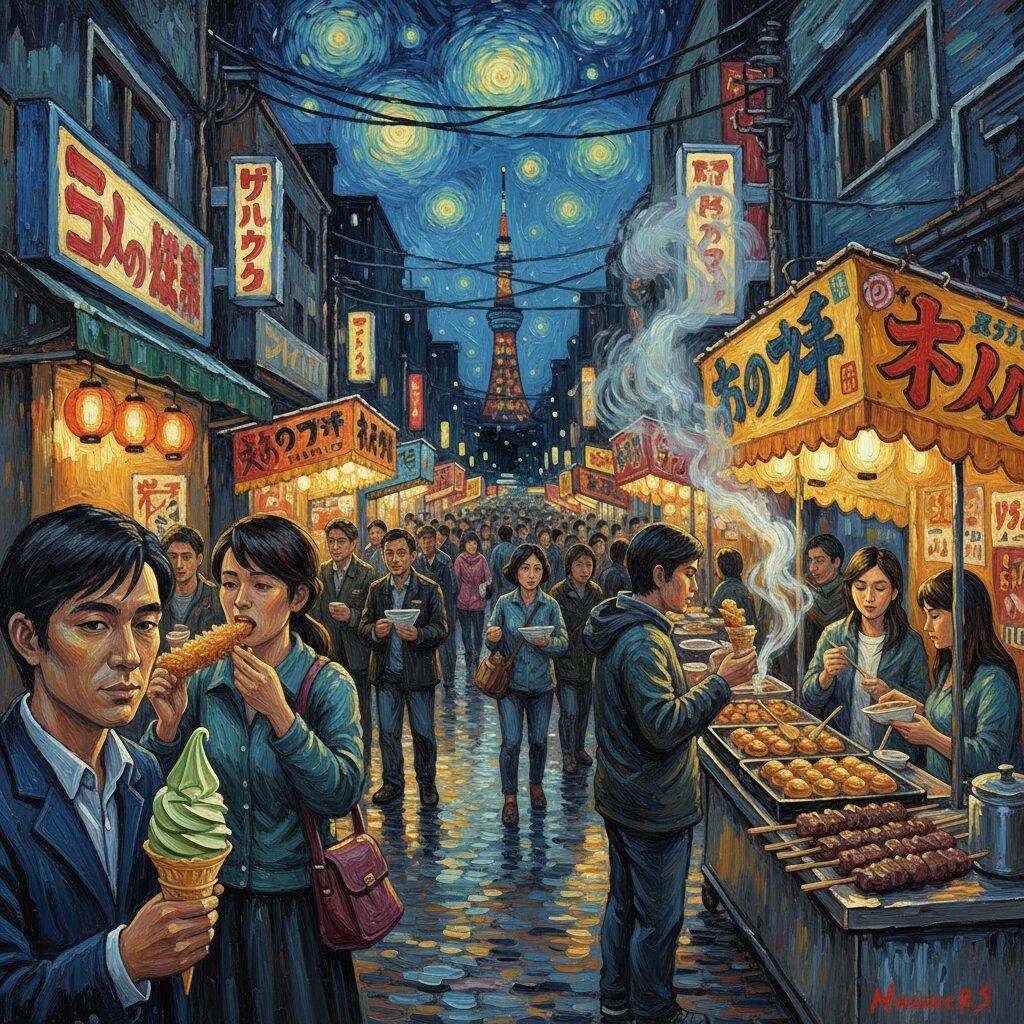
Exploring Den Den Town can be quite energy-consuming, making snack breaks a vital part of your itinerary. The streets are alive with enticing aromas from small stalls and shops offering quick bites, perfect for refueling before you continue your shopping adventure. It is in these casual encounters with Japanese street food that you often discover some of the most delightful and surprisingly Muslim-friendly treats.
Classic Street Food: Takoyaki and Taiyaki
Two of Osaka’s most iconic street foods are takoyaki and taiyaki. Takoyaki are small, round balls of savory batter filled with octopus, pickled ginger, and green onion, cooked in a special molded pan. As you stroll the streets, you’ll see skilled vendors expertly flipping the balls with long picks until they are golden and crispy on the outside, yet soft and gooey on the inside. Although the batter is usually fine, it’s a good idea to ask if pork-based lard or flavorings are used in the oil or batter. Most vendors are friendly and happy to share their ingredients. In contrast, taiyaki is a sweet snack shaped like a fish, made from a waffle-like batter and typically filled with sweet red bean paste (anko). Other popular fillings include custard, chocolate, or sweet potato. These are almost always Halal-friendly and make a perfect warm, sweet snack, especially on cooler days. The slightly crispy exterior giving way to a soft, fluffy inside with a warm sweet filling creates a simple yet perfect combination.
Colorful Crepes and Cool Treats
Japanese-style crepes are another favorite street food, particularly popular among younger crowds in Den Den Town. Small stands and shops display elaborate plastic models in their windows, showcasing dozens of combinations. Unlike thin French crepes, these are folded into a cone and filled generously with ingredients like fresh strawberries, bananas, whipped cream, cheesecake, brownies, and ice cream, all drizzled with chocolate or caramel sauce. The batter, made from simple flour, eggs, and milk, makes it a safe choice. These crepes are colorful, decadent, and highly Instagrammable, providing a welcome sugar boost. To cool down, look out for soft-serve ice cream shops. While Japan offers many unique flavors, classic vanilla, chocolate, and the popular matcha (green tea) are generally free of non-Halal additives like gelatin. It’s a simple, universally loved pleasure.
Practical Advice for Your Den Den Town Adventure
Navigating a new city, especially when you have specific dietary needs, can be intimidating, but a bit of preparation goes a long way toward ensuring a smooth and enjoyable trip. Den Den Town is conveniently situated and relatively easy to explore, making it an excellent destination for first-time visitors to Osaka. Here are some practical tips to help you get the most out of your culinary and cultural adventure in this vibrant neighborhood.
Getting There and Getting Around
Den Den Town is very accessible. It lies between two major areas, Namba to the north and Shinsekai to the south. The nearest train stations are Ebisucho Station on the Sakaisuji subway line, which places you right at the southern end of the main strip, and Nippombashi Station, served by the Sakaisuji and Sennichimae subway lines. It’s also just a pleasant 10 to 15-minute walk from the major hub of Nankai Namba Station, which is a key terminal for travelers arriving from Kansai International Airport (KIX). The best way to explore the area is on foot. The main road is broad and easy to navigate, but the real charm is found when you venture into the smaller side streets, so wear comfortable shoes and be ready to explore. The neighborhood is mostly flat, making it suitable for families with strollers or individuals with mobility concerns.
When to Visit and What to Expect
Shops in Den Den Town usually open later than in other parts of the city, generally around 11:00 AM, and close between 7:00 PM and 8:00 PM. Weekends are the busiest, with the streets bustling with locals and tourists alike. The lively atmosphere is ideal for people-watching and immersing yourself in the energetic otaku culture. For a quieter shopping experience with fewer crowds, a weekday visit is preferable. Some smaller, independent restaurants may have irregular hours or close on certain days of the week, so if you’re hoping to visit a specific place, it’s wise to check their website or social media for up-to-date information beforehand. Many eateries, especially ramen shops, are quite small, so you might need to wait briefly during peak lunch or dinner times, but the experience is always worthwhile.
Communication and Finding What You Need
While fluency in Japanese isn’t necessary, learning a few key phrases can greatly smooth your experience and will always be appreciated by locals. Simple greetings like “Konnichiwa” (Hello) and “Arigatou gozaimasu” (Thank you) go a long way. For discussing food, these phrases are especially helpful:
- “Kore wa hararu desu ka?” (Is this Halal?)
- “Butaniku wa haitte imasu ka?” (Does this contain pork?)
- “Arukōru wa haitte imasu ka?” (Does this contain alcohol?)
Many restaurants in tourist-frequented areas such as Den Den Town offer English or picture menus, making ordering straightforward. Don’t hesitate to use translation apps on your phone to ask more detailed questions. Look out for official Halal certification logos displayed in restaurant windows; seeing one allows you to dine with confidence. If a place is marked “Muslim-friendly,” feel free to politely inquire with the staff about their ingredients and preparation methods. Japanese service staff are known for their honesty and will do their best to accommodate your needs.
A Place of Welcome and Wonder
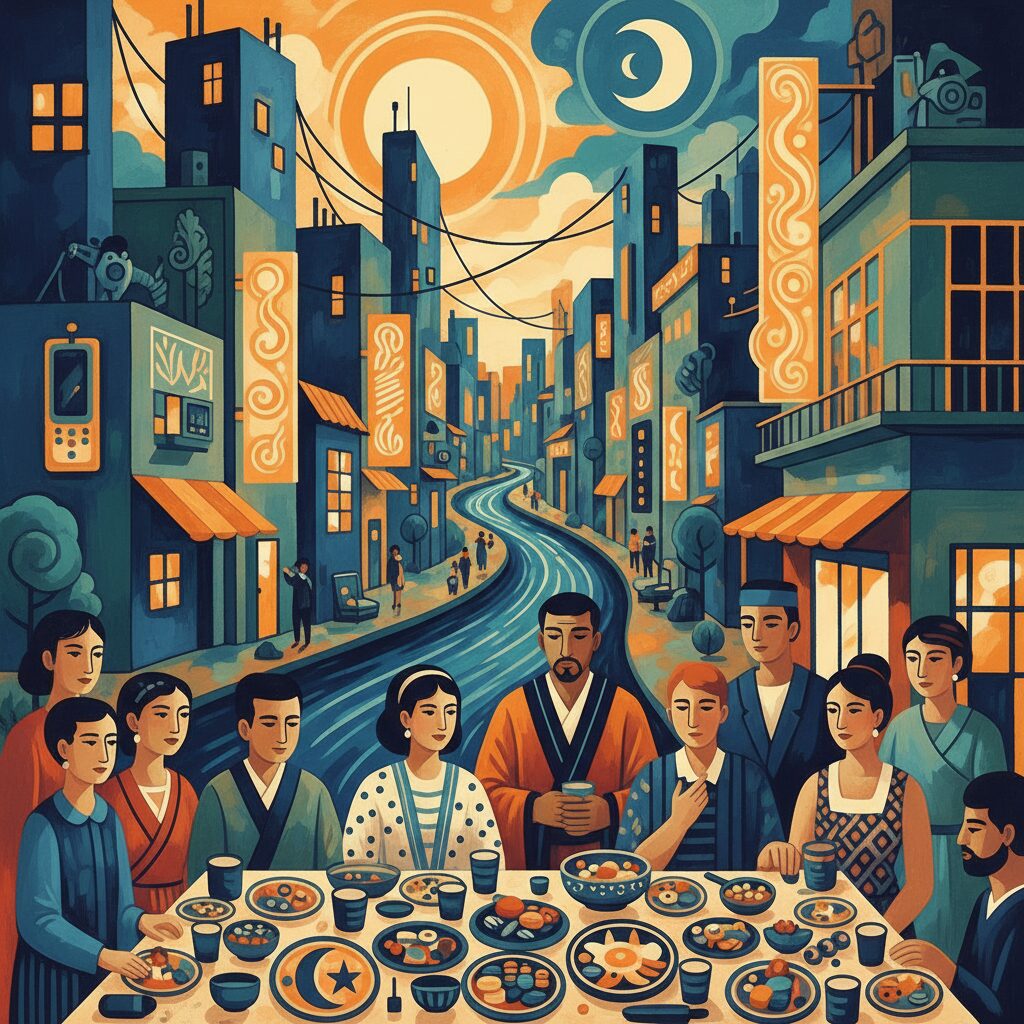
Den Den Town is much more than just an area for electronics and anime. It is a vibrant cultural hub that embodies the dynamic and ever-changing spirit of Osaka. It’s a place where tradition and modernity merge in the most striking way, where you can discover a centuries-old craft alongside the latest high-tech gadget. Now, it also warmly welcomes Muslim travelers, offering a part of Japan where the country’s rich culinary heritage is carefully and deliciously adapted for a global audience. The dedication and care local business owners put into providing Halal options represent a genuine form of hospitality that makes visitors feel acknowledged and appreciated. So, visit Den Den Town with an open mind and an empty stomach. Immerse yourself in its neon-lit streets, explore its hidden alleys, and be ready to be amazed. Whether you’re an avid anime fan, a tech enthusiast, or simply a curious traveler seeking an unforgettable meal, you’ll discover that Osaka’s electric heart offers a flavor for everyone.
